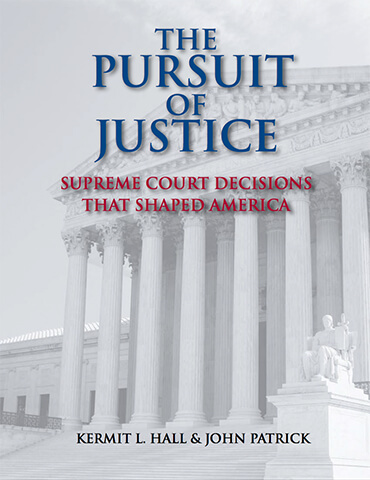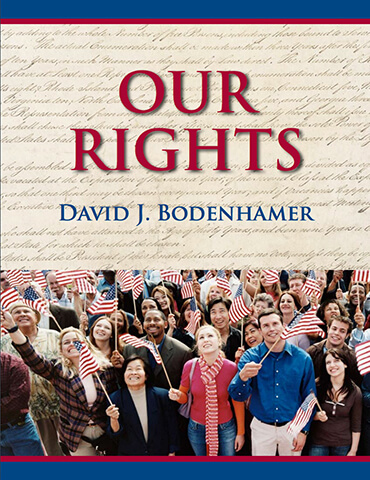A level of judicial scrutiny courts apply to statutes involving the classification of people, such as gender or immigration status, to ensure equal protection of the law. Intermediate scrutiny is a tougher standard to meet than the rational basis test, but not as severe as strict scrutiny. Kolbert and Mettger, Censoring the Web
The highest level of constitutional protection courts can apply in determining whether a law or governmental action violates equal protection guarantees in the Fifth and 14th Amendments. To meet strict scrutiny, a law must satisfy two requirements: It must serve a compelling state interest and it must be narrowly tailored to serve that interest. For
The First Amendment of the U.S. Constitution states, “Congress shall make no law respecting an establishment of religion . . . ” Americans have always agreed that this “establishment clause” prohibits the government from establishing or promoting a national religion. However, since the earliest years of the republic, Americans have disagreed about whether the establishment clause bans all government involvement with religion.
This annotated list provides citations and brief descriptions of important Supreme Court decisions, presented in an A–Z format. Most of the cases are related in some way to the topics and cases treated in the chapters of this book. In addition, this list includes every case—except those already emphasized in the chapters— mentioned in the social studies standards of the state departments of education throughout the United States.
The founders of the United States believed a free press was a prerequisite for a free society. James Madison, often called the Father of the Constitution, said it was “one of the great bulwarks of liberty.”
A test used to determine whether a law or governmental regulation or action violates the equal protection clause. The rational basis test is used in most circumstances, such as reviewing economic regulations. The test is less intensive than “strict scrutiny” or “intermediate review,” which are used when legislation affects certain types of persons that the
A guarantee under the 14th Amendment that a state must treat an individual or a class of individuals (such African-Americans, women or the disabled) the same as it treats other individuals and classes in the same circumstances. The equal protection clause of the Constitution protects against laws that affect people differently without a rational basis
Essential Question: Should the executive branch have the authority to deny individual rights and liberties during times of war, even if it is done in a discriminatory way?

